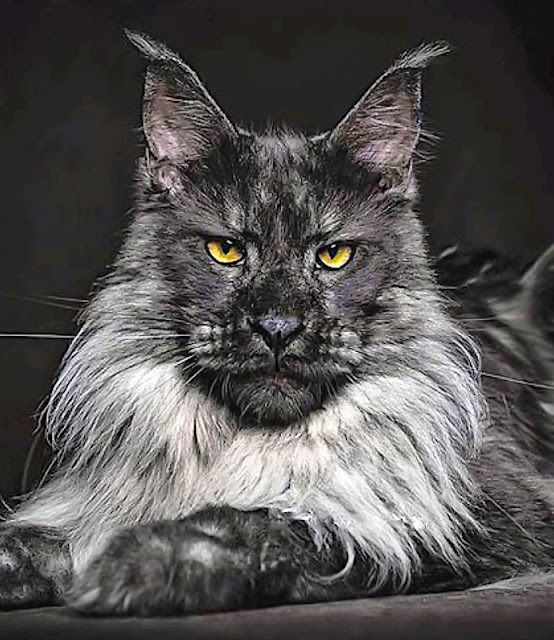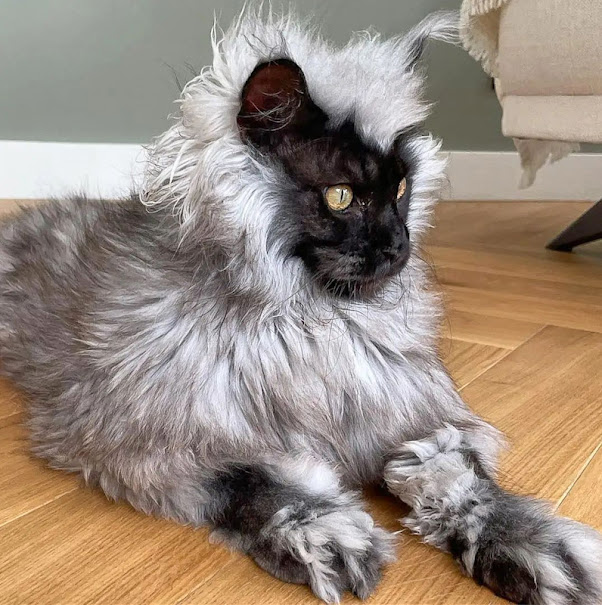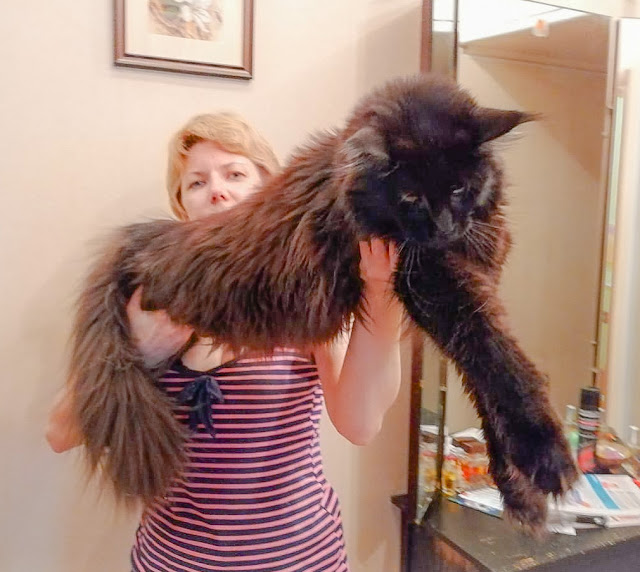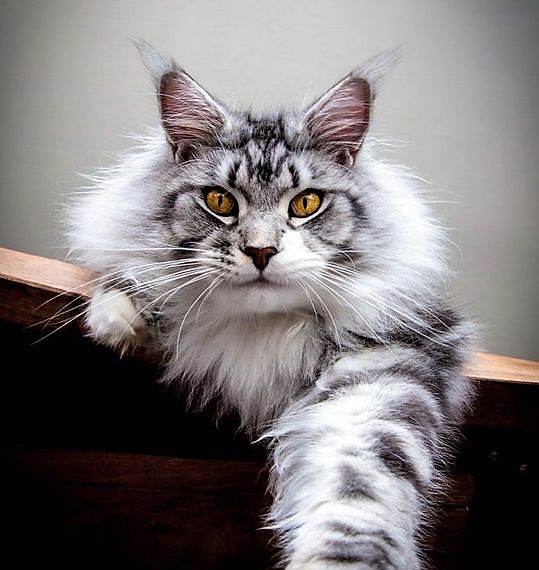11-month-old Maine Coon with excessive bacteria in his stomach. Treatment discussed.
This is a problem with a young Maine Coon cat in the UK who is described as being a fussy eater and the owner's veterinarian has put the problem down to an excess of bacteria in the cat's stomach. The vet prescribed a specialist dry food diet called Royal Canin Gastrointestinal. After a short time, the vet said they could go on to Royal Canin Digestive. But if the condition flared up again, they should revert back to the previous diet. The cat has gone off the earlier diet and now is only eating the second diet.
 |
| Royal Canin Digestive a food for cats with sensitive stomachs? |
Sadly, he has a loose stool i.e. diarrhoea, which is ongoing. The woman was asking for advice on the mumsnet.com website and I provided it. I am not a veterinarian. I can just provide my opinion and she can take it or leave it. My advice is below. Do you have any thoughts which can be passed on to this woman?
I have studied cat food for a long time and there is a lot of information on the Internet and in books about a raw food diet being effective in helping to resolve gastrointestinal issues such as IBD. I am not saying your cat has IBD. It is just an example.
When I read your post, my immediate thought was a good quality raw food diet may help.
Fortunately, in England now, we have a manufacturer that makes this food whereas for a long time there was nobody.
I am not promoting it to make any money. I just want help. It is called KatKin.
Have you tried something like that or even a very high quality commercially prepared wet cat food to see what happens?
I don't think it's a good idea anyway to feed a cat dry cat food all the time for the rest of their life
I think a second opinion would be really useful if you can steel yourself take your cat to another veterinarian.
I am not a veterinarian so you don't have to take my suggestion as a good one.
Another point worth making is that these prescription type dry cat food diets are often not that effective anyway.
They just change the formula slightly and I think it is better to go back to basics and provide your cat with a food which is absolutely like the food that they would eat normally in the wild which is a mouse.
If you try and replicate that as a starting point and go from there it may help.
Also, I'd ask a vet the reason behind the excess of bacteria in the stomach. What is the cause and can it be removed? Has that been researched?
Finally, what about probiotics? Did the vet discuss giving your cat probiotics?
Persistent diarrhoea is a serious matter by the way. Your cat will become dehydrated. Especially as he is on dry cat food anyway which also dehydrates cats.
I think the problem has become a little more serious and a veterinarian needs to comment on the diarrhoea and how to stop it. You can get treatment for that by the way but it needs to be stopped asap.










Comments
Post a Comment
Please share your Maine Coon experiences.